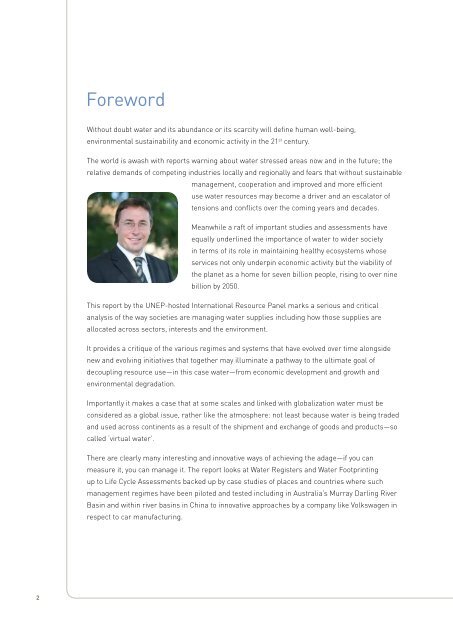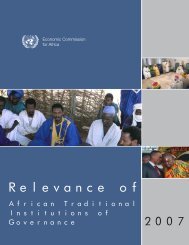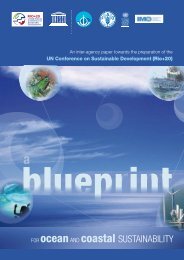MEASURING WATER USE IN A GREEN ECONOMY - UNEP
MEASURING WATER USE IN A GREEN ECONOMY - UNEP
MEASURING WATER USE IN A GREEN ECONOMY - UNEP
You also want an ePaper? Increase the reach of your titles
YUMPU automatically turns print PDFs into web optimized ePapers that Google loves.
Foreword<br />
Without doubt water and its abundance or its scarcity will define human well-being,<br />
environmental sustainability and economic activity in the 21 st century.<br />
The world is awash with reports warning about water stressed areas now and in the future; the<br />
relative demands of competing industries locally and regionally and fears that without sustainable<br />
management, cooperation and improved and more efficient<br />
use water resources may become a driver and an escalator of<br />
tensions and conflicts over the coming years and decades.<br />
Meanwhile a raft of important studies and assessments have<br />
equally underlined the importance of water to wider society<br />
in terms of its role in maintaining healthy ecosystems whose<br />
services not only underpin economic activity but the viability of<br />
the planet as a home for seven billion people, rising to over nine<br />
billion by 2050.<br />
This report by the <strong>UNEP</strong>-hosted International Resource Panel marks a serious and critical<br />
analysis of the way societies are managing water supplies including how those supplies are<br />
allocated across sectors, interests and the environment.<br />
It provides a critique of the various regimes and systems that have evolved over time alongside<br />
new and evolving initiatives that together may illuminate a pathway to the ultimate goal of<br />
decoupling resource use—in this case water—from economic development and growth and<br />
environmental degradation.<br />
Importantly it makes a case that at some scales and linked with globalization water must be<br />
considered as a global issue, rather like the atmosphere: not least because water is being traded<br />
and used across continents as a result of the shipment and exchange of goods and products—so<br />
called ‘virtual water’.<br />
There are clearly many interesting and innovative ways of achieving the adage—if you can<br />
measure it, you can manage it. The report looks at Water Registers and Water Footprinting<br />
up to Life Cycle Assessments backed up by case studies of places and countries where such<br />
management regimes have been piloted and tested including in Australia’s Murray Darling River<br />
Basin and within river basins in China to innovative approaches by a company like Volkswagen in<br />
respect to car manufacturing.<br />
2

















